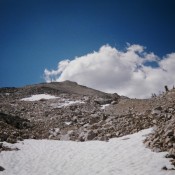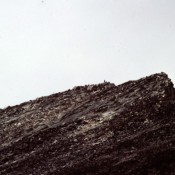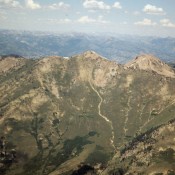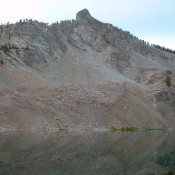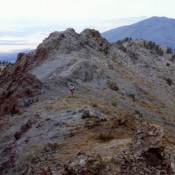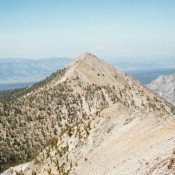
Climbing and access information for this peak is on Pages 201-202 of the book. The book covers the route up the peak’s northeast ridge. Judi Steciak and Carl Hamke provided route information and access information for the South Ridge Route. Livingston Douglas provided the route and access information for the peak’s East Ridge Route. Updated November 2022 McDonald Peak sits … Continue reading
